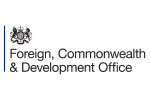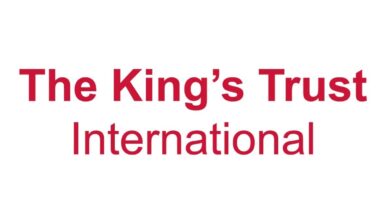18 April 2025
The US has revoked key licences that enabled Trinidad and Tobago to pursue joint natural gas projects with Venezuela, in a move that has sent shockwaves through the nation’s energy sector and raised questions about its economic future.
Prime Minister Stuart Young confirmed the revocation of the Office of Foreign Assets Control (OFAC) licences for the Dragon and Cocuina-Manakin gas fields during a sombre press conference at Whitehall on 8 April.
“We have now been informed that our licence from OFAC, which is dated 18 December 2023, has been revoked by OFAC, as well as our Manakin-Cocuina licence,” said Young.
The licences had allowed multinational energy giants Shell and BP, along with Trinidad’s state-owned National Gas Company, to develop offshore gas fields near the Venezuelan maritime border. The Dragon field alone holds an estimated 4tn cubic feet of gas, with first exports initially slated for 2026.
These projects were seen as critical to reversing Trinidad’s declining gas output and maintaining its status as Latin America’s largest liquefied natural gas (LNG) exporter.
However, the Trump Administration’s broader rollback of an ease in Venezuelan sanctions has left the Caribbean nation scrambling for alternatives. “It prevents payment at this stage to the Venezuelan Government. We are going to continue doing the work,” Young said, adding that companies have until 27 May to wind down operations.
Trinidad had already begun paying over US$1mn per year in taxes to Venezuela for the expected 20-year Dragon project. But the move by Washington, citing concerns over Venezuela’s failure to restore democratic norms and manage illegal migration, has effectively frozen the deal.
Young made it clear that his government is not giving up. He has already contacted Washington-based attorneys to explore options for a legal response. “There is a process for, I wouldn’t say appeal of this revocation, but for you to make an application for it not to be, or for there to be amendments. We are going to be engaging that process on behalf of Trinidad and Tobago,” he said.
Young has also reached out to key US officials, including Special Envoy for Latin America Mauricio Claver-Carone and Secretary of State Marco Rubio. “I expect that we will be given an audience. I expect that we will be given the opportunity to continue to make our case,” said Young.
The Prime Minister stressed that the US had earlier assured him the move was not intended to harm Trinidad and Tobago. “Secretary of State Rubio told me, ‘Stuart, in this thing there are many ways and times can change, but don’t worry, we’re not going to harm Trinidad and Tobago,’” he shared.
Nonetheless, opposition politicians have seized on the setback. David Lee, shadow energy minister for the United National Congress (UNC), criticised the government’s overreliance on Venezuela. “You had placed all your eggs in the basket of the Maduro government… We told them so,” said Lee during a campaign walkabout in Preysal.
UNC’s Sean Sobers was even more direct. “What we said is we had a problem with Maduro, dealing with the Venezuelan administration, and that it would be a geopolitical nightmare to place Trinidad and Tobago’s future in one basket.”
Economists and energy experts have echoed concerns. “This means short to medium term disaster for the economy as it spells the continued contraction of the energy sector,“ warned Dr Indera Sagewan in an interview with the Guardian Newspaper, adding that “we knew a Trump administration would spell bad news for this deal.”
Energy expert Tony Paul noted that while the situation is grim, opportunities remain within Trinidad’s exclusive economic zone. “We can start by simply collecting the taxes due to us under existing law and closing major revenue loopholes,” said Paul.
From a fiscal perspective, the consequences are stark. Former Finance Minister Colm Imbert, in a sworn affidavit, admitted that without gas from Venezuela, the government would “soon be faced with very difficult choices in terms of maintaining the current levels of subsidies, grants, free services and social programmes.” The country’s ongoing foreign exchange problem is also a concern.
The Energy Chamber also urged a redirection of focus. “There are significant opportunities to develop natural gas fields within Trinidad and Tobago’s exclusive economic zone and these must also be pursued actively and urgently.”
Still, Young assured the population that all is not lost. “Plan B and Plan C and Plan D are already in play,” he said, highlighting the ongoing Manatee project and other domestic fields like Mento, Calypso, and Onyx.
“The good thing is they understand and have taken careful note of what it is Trinidad and Tobago can do,” Young added, referring to his discussions with US officials. “We will continue to fight for the ability and the opportunity to keep our energy sector whole.”
Yet, as Trinidad nears its 28 April general election, the political and economic implications of the revocations are expected to loom large over the national conversation and whether the ruling People’s National Movement (PNM) will be returned to power.
Source: Caribbean Insight – Volume 47, Issue 8






